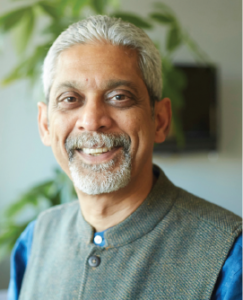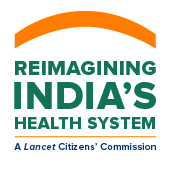In Conversation: Vikram Patel, Pershing Square Professor of Global Health, Harvard Medical School; Professor, Harvard TH Chan School of Public Health; Co-founder, Sangath
May 9, 2023

I have devoted much of my career towards the goal of improving access to evidence-based care for people with mental health problems. This has led me to appreciate the fundamental role of primary care which is intended to address the full range of common health problems. Of course, primary care is the most important delivery platform in universal health coverage, whose key principles of universality, equity, accountability, and quality, are also central to mental health care. In short, without UHC, there can be no universal mental health care.
I have been primarily involved in conceptualization of the vision and guiding principles of the commission and on the design and oversight of some of the research studies, notably the theory of change workshops, the qualitative studies with policy actors and the two major surveys we are conducting with citizens and doctors.
I think the key challenge is the tension between the prevailing approach of allowing two systems to operate in parallel (i.e., the public and private), with minimal regulation of either, with the need for a population-based health care system which integrates all providers within a common framework of accountability and quality. Related challenges include the growing reliance on an insurance model which pays for services rather than a per capita model which values health outcomes, the lack of trust between private and public sectors, and the need to aggressively address the single largest contributor to out of pocket costs, which is the inappropriate use of diagnostic interventions and medicines.
I hope the commission, which will be published after the national elections scheduled for 2024, will inform the newly elected government’s policies on the reforms needed to improve the performance of India’s health care system, bringing it closer to the ideals of UHC. Addressing the structural challenges facing the path to UHC is an urgent task for the new government to build resilience in the health care system not only to address existing problems but also to prepare for emerging ones related to climate change and novel infectious pathogens. Of course, this will require the commission to play an active role in disseminating our recommendations widely to policy makers and other stakeholders, offering support to implement them, and monitoring and evaluating the performance of health care systems at the level of districts.
